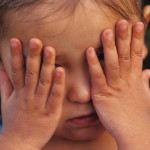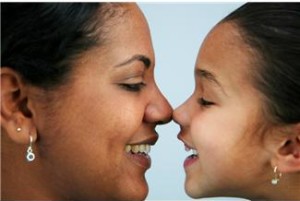 The National Child Abuse and Neglect Data System defines neglect as “a type of maltreatment that refers to the failure by the caregiver to provide needed, age-appropriate care although financially able to do so or offered financial or other means to do so.” Neglect is a unique type of trauma because only children (and, in some cases, dependent adults) are susceptible. In order to experience neglect, a person must be reliant on others for their physical and emotional well being. This vulnerability means that victims of child neglect are predisposed to experiencing related trauma (including PTSD) later in life.
The National Child Abuse and Neglect Data System defines neglect as “a type of maltreatment that refers to the failure by the caregiver to provide needed, age-appropriate care although financially able to do so or offered financial or other means to do so.” Neglect is a unique type of trauma because only children (and, in some cases, dependent adults) are susceptible. In order to experience neglect, a person must be reliant on others for their physical and emotional well being. This vulnerability means that victims of child neglect are predisposed to experiencing related trauma (including PTSD) later in life.
Physical Neglect: Children need the same basic necessities as everyone: food, clothing, shelter. However, they are reliant on others to provide these necessities. If a provider is not ensuring that their trustee is given these essentials, it is considered neglect. Physical neglect might mean that a parent is neglecting to provide adequately nutritious meals consistently, or it might mean that a parent has literally abandoned their child.
Educational neglect: Failure to provide a child with adequate education in the form of enrolling them in school or providing adequate home schooling.
Emotional neglect: Consistently ignoring, rejecting, verbally abusing, teasing, withholding love, isolating, or terrorizing a child. Emotional neglect can also include subjecting a child to corruptive or exploitative situations (such as illegal drug use).
Medical neglect: American Humane.org cites Medical Neglect as “the failure to provide appropriate health care for a child (although financially able to do so), thus placing the child at risk of being seriously disabled or disfigured or dying.” Of all the types of neglect, this is the trickiest to diagnose because religious or financial factors can play an adverse role in a child receiving appropriate medical care.
The dangers of neglect can be dire for a child’s healthy development. Without proper care, children are in danger of not developing properly due to malnutrition, physical injury, or illness. But the hidden danger of child neglect – the one that may not be apparent for many years but which can stick with a person for their lifetime – is the risk of Post Traumatic Stress Disorder (PTSD) that can affect them psychologically and emotionally in the long-term.
 The psychological principle of attachment theory proposes that children become psychologically attached to their caregivers (and particularly their mothers) as infants in order to establish a vital sense of security. 4 In nature’s terms, keeping a child attached to the mother increases its chances of survival. So it stands to reason that being neglected is an affront to the “healthy, normal” sense of attachment that nature desires for children to have with their caregiver(s).
The psychological principle of attachment theory proposes that children become psychologically attached to their caregivers (and particularly their mothers) as infants in order to establish a vital sense of security. 4 In nature’s terms, keeping a child attached to the mother increases its chances of survival. So it stands to reason that being neglected is an affront to the “healthy, normal” sense of attachment that nature desires for children to have with their caregiver(s).
According to extensive research done by psychologist Mary Ainsworth in the 1970’s (published in her groundbreaking study Strange Situation), “What happens to children who do not form secure attachments? Research suggests that failure to form secure attachments early in life can have a negative impact on behavior in later childhood and throughout the[ir] life. Children diagnosed with oppositional-defiant disorder (ODD), conduct disorder (CD), or post-traumatic stress disorder (PTSD) frequently display attachment problems, possibly due to early abuse, neglect, or trauma.”4 In other words, children who experience neglect early in life may be at risk for a lifetime of trouble attaching properly in relationships.
Recovering from Childhood Neglect
By MARIE HARTWELL-WALKER, ED.D.
The long term effects of childhood neglect are many and serious. Have you fallen in and out of love with people who can’t love you back? Do you believe that you are essentially unlovable? If you never felt loved by your parents, you may not know what it really means to love and be loved. Are you unable to adequately take care of yourself or people you love? Maybe you were never taught how to take care of a home, prepare healthy meals, or manage your money. Are your easily frustrated by your kids and uncertain how to parent?
If your parents never took care of you, you may feel clueless about how to take care of your own children. Do you find it difficult to empathize with others’ pain? Do others accuse you of being selfish and unfeeling? When a child has never had enough, be it food, or attention, or love, it’s hard for the adult he becomes to ever feel he has enough to share.
If you were neglected as a child, you are not doomed. You don’t have to accept your early training that you are not worth someone’s love. You don’t have to become an overly dependent partner or an inadequate parent. You don’t have to repeat the pattern of neglect that may have been in your family for generations. By taking steps to understand yourself, love yourself, and learn new skills, you can turn the negative effects of neglect around.
The first step is to stop blaming yourself for being somehow inadequate and other people for letting you down. You have been caught up in a very old pattern. Having been neglected as a child, you continue to neglect yourself. Having been ignored or worse, you continue to find people who ignore and mistreat you. It’s time to get some re-parenting to compensate for the parenting you never had. As an adult you can take charge of your life and make your future better than your past.
You can make up for the years when nobody cared. Just as you can put yourself on a physical fitness program to strengthen your body, you can create an “anti-neglect” program to strengthen your self-esteem and improve your relationships with others. Consider these resources, create a plan, and write it down. Be as specific as you know how. Writing it down will make your commitment to yourself more real. Keeping a journal or diary of your progress will help keep you on track.
Re-parenting Resources
Individual psychotherapy can help you learn to love and care for yourself. The adult you are now can learn how to “parent” the needy and neglected child that you carry within. Your therapist can provide you with an adult witness and can guide your growth, becoming for a time the “good parent” to your neglected child. As therapy winds down, the relationship will change to one that is adult to adult.
Group therapy can help you feel less alone in your problems and can help you develop empathy for others. You will get feedback about how others see you so that you can develop better social skills. By observing and interacting with other members of the group, you will get help in reversing old self-destructive patterns and support for establishing a healthier approach to life.
Couples therapy can help you and your partner learn how to meet your own and each other’s needs. Some adult survivors of neglect repeat their relationship with their parents by finding partners who neglect them. Others find people like themselves who are well-intentioned but who don’t know how to nurture. Healthy relationships are reciprocal. Each person has times when they give, times when they receive.
Parent education classes can help you learn the practical skills necessary to parent well so that you don’t repeat your parents’ mistakes. You may be horrified to find that you are repeating the kind of parenting your experienced, and hated, as a child. As much as you’ve promised yourself that you would do better; as much as you’ve worked to remember how much you resented being overlooked and mistreated, you are easily frustrated by your children and find yourself distancing from them.
Parent support groups such as Parents Anonymous can provide you with important support and practical help. Parenting programs like STEP (Systematic Training for Effective Parenting), PET (Parent Effectiveness Training), Triple-P or Positive Parenting Program, or any of a plethora of other parent education systems can provide you with skills you didn’t have a chance to learn while growing up. Check to see if your kids’ school, your church, or a local mental health agency offers classes.
Find an older friend. No, I’m not suggesting you go looking for a new mother or father. But relationships with elders can have a parenting dimension. Think of the people you’ve met who are a generation older, who are happily partnered, and who seem to have positive, loving relationships with their adult children. Spend more time with them. Listen to their stories about their families. You’ll give yourself positive role models to counteract the one you had.
Spiritual practice or religion can give you the all-loving, accepting parent you never had. Whether you look to God, the goddess, a loving spirit guide, or nature, one of the most powerful ways to experience an alternative parent is by belief in a presence who loves unconditionally and who takes a personal interest in your welfare. By becoming a child of god, however you define it, you can finally find parental love.
Read. There are many books written by people who were parented badly and who determinedly made a better life. Their memoirs can serve as an inspiration and a guide. In another aisle of the bookstore are parenting books — lots of parenting books. Using more than one will overwhelm you and confuse your kids. Take an hour or two to browse. Find a philosophy and style that makes sense to you and buy just that one book. Read it and refer to it often. Use the techniques until they feel natural.
Sticking to your plan will be difficult. There will be times you will want to add yourself to the list of people who haven’t come through for you. The key to success is to give yourself lots of second chances. A slip-up isn’t failure. It is only another opportunity to reaffirm your own worth by getting back on the program. Do give yourself lots of credit for every time you manage to do things just a bit differently. With practice, taking care of yourself and the people you love will become second nature. Stay with it. You’re worth it.
